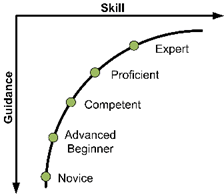Live examples of successful people help others in the process believe in themselves, allowing them to let go of the big emotional quandary they are engulfed within. Consider entrepreneurship and leadership for instance. A majority of potential leaders believe that they aren’t cut out for corporate slavery and perhaps venturing into the world of entrepreneurship is the only way to cut the deal. In order to find success in business, walking in another person’s shoes might be challenging but helpful at the very most.

Why Learn from Successful Business Owners
In order to ensure success in business, every potential leader or budding entrepreneur should adhere to life advices of successful business owners to help pave way for what they might come across. These life instances might range from advice about the key management of personal and professional lives, or sometimes, they might be mapping out a route for you to follow.
Management of finances, on one hand, is perhaps one of the major triggers for budding startup owners, especially when you have to build a company from scratch. It might either head towards a successful investment or lead you into a debt with bankruptcy on the verge.
Advice of most successful business owners help you with your finances by providing you with a guide to small business loans or by advising you to aim for opportunities that might serve as investments in the near future.
Key Lessons Successful Business Owners Can Teach
In order to learn how you can promote your startup’s progress, you have to learn how you can handle your finances by paying attention to the following lessons from successful business owners.
Focus on Skill Acquisition
Graduating from college and hoping to start out as a start-up entrepreneur with a hundred-thousand-dollar paycheque to your name every month seems quite impressive, doesn’t it? According to Tim Ferris, an investor and author of the best-selling ‘The 4-Hour Work Week’, it doesn’t.
Tim prioritizes the learning instead of earning huge sums in the initial 20-30 years of your life. According to this angel investor, skill acquisition over a specific time period within your niche might help you to prevent a bloated lifestyle that’s about to follow if you ignore the process of learning in your initial stages.
Start Investing
According to Kevin Cleary, CEO of the Cliff Bar and Company, 20-30 year olds are oblivious to the benefits of investing from your early years. Investing from the very beginning has huge horizons to follow and major opportunities to reap. These are the years when people don’t prioritize their time or take care about their expenses, hoping to make it big when the ‘time’ comes.
The power to rule out bankruptcy or stress towards financial management in the future is vested in every individual. So, it is up to you to leverage the opportunity of investing from the very beginning to prevent yourself from quaking in the future. Describes below is a model for different learning stages and their consequences on performance and gains.

Follow Your Passion
One of the major advices of Blake Mycoskie of TOMS is to focus on your passion and follow it to make your dreams come true. He says that youngsters in their 20s fail to see the big picture by focusing on baseless strategies in order to live in the now and secure happiness.
If you really want to secure happiness, then instead of chasing big paychecks, try focusing on your passion so that you can see it grow to infinite lengths.
Change Your Mindset
Self-made millionaire and author of ‘How Rich People Think’, Steve Siebold believes that that mindsets matter quite a lot when it comes to establishing a start-up. He says that people who aren’t privileged from the start don’t know how to battle the extremes of financial expenses.
These people tend to live in a bubble, and make no efforts to change their mindset to elevate themselves above their middle-class existence.
In order to promote yourself amidst competition, you have to think like a rich person and believe in yourself. You have to stay optimistic at all times – even when you’re battling the worst of all situations – so that you can help and pay for yourself. This can be better illustrated in the diagram below.

Surround Yourself with Positive People
According to Tony Ribbons, you can stay at the top of your game or expect yourself to grow by helping others out at the same time. Competitors believe that they have to lash out at people and gobble their opportunities.
While there is some truth to that, there is also valid truth in knowing that you can grow optimally in your niche if you surround yourself with people who push you towards it and help you achieve your goals.
Track Your Expenses
Your startup isn’t going to progress into an enterprise if you focus on spending every penny you earn. Hire a book-keeping agent so that you can monitor and track the expenses of your newly established front.
Introduce user-friendly and cost-effective accounting software so that your bookkeeper can provide you with up-to-date logistics for optimum cash-flow management.
Focus on Customer Growth
Your business is incomplete without customers. Acquiring customers is as important as opting to implement resources for retaining them. Suppose you’ve been successful in acquiring your very first customer for your startup. Now that you’d studied various channels for customer acquisition, you’d probably be enticed towards exploring other opportunities.
While this is encouraged, it is also necessary to focus on your previous customers so that you turn them into a loyal fan-base. Learn more about your target audience so that you can implement ways to scale out opportunities for both customer acquisition and retention in accordance to your budget.
The Bottom Line
Role models, mentors and life coaches help to shape up our lives in a way that a textbook version of the same wouldn’t. Evidences and real-life human examples are far more important and explicit than mere words that don’t have any proof of actual authorities backing them up. We need physical instances and live occurrences or proof of success in the form of mere quotations tied within a podcast to help us motivate ourselves for the big trophy.




